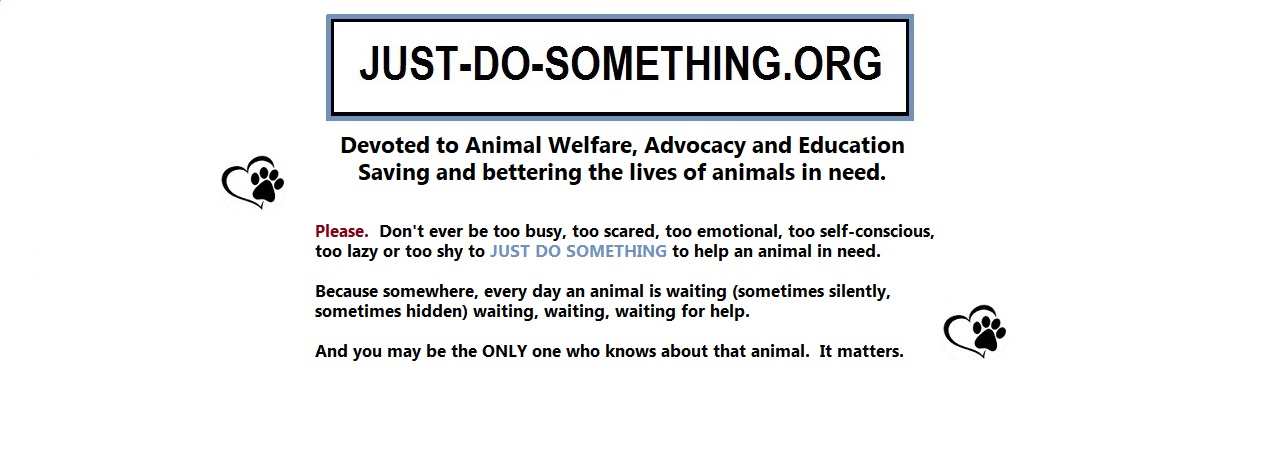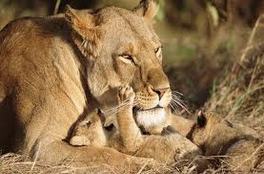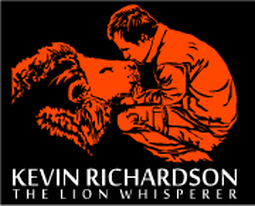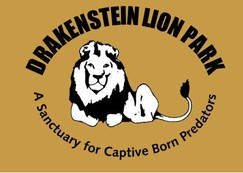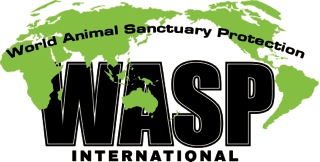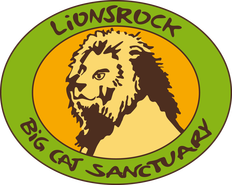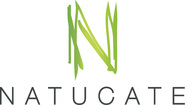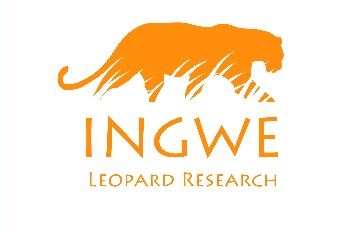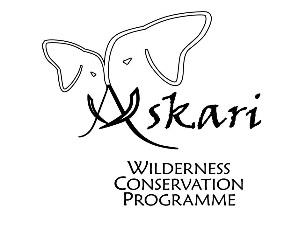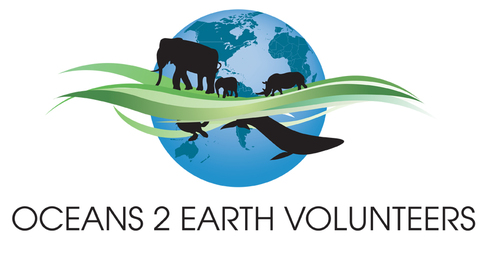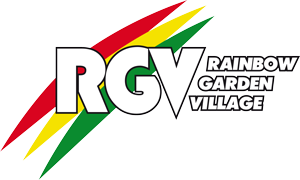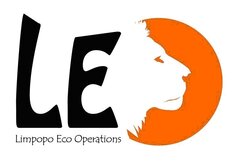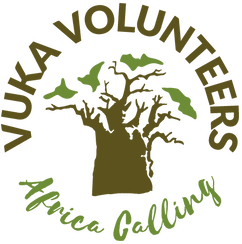Guest Blogger, Campaign Against Canned Hunting (CACH)
Ensure that your volunteer work supports only ethical organizations
As a volunteer, the first thing you should realise is that the way you spend your money affects the world around you. If you go to lion farms posing as wildlife sanctuaries in order to play with lion cubs and bottle feed them, then you are promoting and expanding the canned lion hunting industry.
You should know by now that almost every place offering cub petting is linked in some way to the canned lion industry because cub petting is a profitable sideline for lion breeders. If you insist on cub petting you should be aware that virtually every cub petted today will die in agony from a bullet or arrow when it is old enough for a hunt. https://www.facebook.com/volunteersbeware
If you spend your volunteer money responsibly, then the canned hunting industry will be starved of money and it will shrink.
Below you can choose from these organisations which have pledged only to place you,
the volunteer, at ethical places:
THE KINGDOM:
For those wanting a more hands on stay, our volunteer program offers volunteers the unique opportunity to get their hands dirty – literally!
You will work very closely with our team and play an important role in the maintenance, care, management and enrichment of all the animals at the sanctuary. You will enjoy the spectacular African bush and come face-to-face with majestic lions and hear their magnificent roars at night. You will get to see the unique dynamics in a clan of hyenas and marvel at the beauty of the leopards.
Website: http://www.lionwhisperer.co.za/
DRAKENSTEIN LION PARK:
Drakenstein Lion Park is an award winning and internationally acclaimed sanctuary for captive born lions that cannot be rehabilitated into the wild.
As a genuine sanctuary, the Park is not involved in breeding or any form of commercial trade.
Volunteers have the unique opportunity to become a part of our team of dedicated animal care givers and experience the day to day running of a lion sanctuary, working for the animals and not with them.
The Lion Park rescues abused lions from around the world and is currently home to 35 lions, including 5 rare white lions and 2 Bengal tigers. The Lion Park is also home to caracal, black crows, llamas, dwarf goats and black swans. Visitors can enjoy a unique wildlife experience only 30 minutes from Cape Town.
As a sanctuary we do not allow any form of visitor/animal interaction.
Chimp Haven
Chimp Haven is a specially designed facility that has been created to provide a home to a number of animals displaced by the closure of Tygerberg Zoo. Chimp Haven is home to chimpanzees, capuchin monkeys, marmosets, parrots, wallabies, duiker and numerous waterfowl.
Website: http://www.lionrescue.org.za/
WORLD ANIMAL SANCTUARY PROTECTION (WASP):
WASP is an interactive and information site for ethical sanctuary world wide. We are only in our infancy like the Karoo Wildlife Centre and will endeavour to list as many ethical tourist locations world wide and hopefully guide tourism to healthy choices.
Website: http://www.waspinternational.com/
VIA VOLUNTEERS:
Via Volunteers supports non-profit community, conservation & wildlife projects in South Africa through the provision of affordable, rewarding volunteer placements for international volunteers. We work with sustainable long term projects that are developed through genuine community and conservation needs to ensure that your contribution is meaningful and long lasting.
We are based in South Africa and maintain regular personal contact with all our project partners. Each and every project has been personally vetted by the Via Volunteers team, and we work hard to ensure that the information we provide for you is both comprehensive and up to date, so that you can make an informed decision about joining one or more of our projects.
With more than 10 years’ experience organizing project placements for thousands of volunteers from more than 50 countries, the Via Volunteers team is well placed to provide you with a high quality volunteering experience that will exceed your expectations.
Website: http://www.viavolunteers.com/
SAMARA PRIVATE GAME RESERVE:
Samara Private Game Reserve in South Africa is a hub of conservation and animal re-introduction efforts in the Great Karoo basin. As a volunteer you will work on ongoing wildlife research and management projects as well as assist with community development and environmental education programmes. Come get your hands dirty in a unique South African bush experience!
Our Volunteer programme is where young people from around the world come to learn more of the animals and bio-diversity on Samara and to assist with various programmes such as land regeneration and also interaction with the children of Vuyani Safe Haven in Graaff-Reinet. There is also research taking place at Samara such as studying the Vervet Monkeys.
Website: http://www.samara.co.za/
LIONSROCK SANCTUARY:
If you’re passionate about helping our big cats and really want to support the work of the LIONSROCK sanctuary why not come and do it in person?
At LIONSROCK we not only welcome volunteers, we depend on them. You can join our team for a minimum of 4 weeks (and for as long as you like) helping with many critical aspects of our animals’ welfare and the smooth running and maintenance of the sanctuary.
Situated in the picturesque area of Stanford in the Western Cape, Panthera Africa Big Cat Sanctuary was founded in 2014.
At present Panthera Africa, a true sanctuary, provides a forever home to14 rescued big cats. Each cat’s journey tells a remarkable story of how love, commitment, patience, passion and determination provided them with an enriched and prosperous life. The owners and founders, Cathrine S Nyquist and Lizaene Cornwall, form a dynamic duo and exude positive energy when sharing their vision. Panthera Africa is set to be the future blueprint for projects of a similar nature in terms of ethical practices. The focus here is on providing the most prosperous home for captive cats through their unique enrichment program. By stimulating the cats’ senses and providing opportunities for them to improve physical skills such as balance and agility, the cats are continuously made to think, explore and be adventurous! Therefore a large part of the volunteer program is based on drafting and implementing new and innovative techniques for big cat enrichment! Naturally there is time to connect with the cats, observe them and learn from them. Volunteers will also take part in the overall care of the cats which includes preparation for feeding, cleaning and general maintenance of the animal enclosures. During your time volunteering with us, there will be opportunities for you to experience the exciting activities on offer in the surrounding areas.
More volunteer info is available on our website. http://pantheraafrica.co.za/
Projects Abroad offers a wide range of conservation projects helping to protect some of the world’s most beautiful and fragile ecosystems in places like Africa, Asia, Latin America and the South Pacific.
The projects are run year-round, with you choosing when you start and finish. With over 700 staff worldwide, volunteers benefit from the support and back-up that Projects Abroad provide both at home and overseas.
You can apply for these projects at any stage in your life. Whether you are taking a year out before university, a career break or simply looking to take time out, you can make a valuable contribution. No previous experience is required as all volunteers will undertake relevant training during the start of their placement.
Website: www.projects-abroad.co.uk
Email: info@projects-abroad.co.uk
German chapter:
Website: www.projects-abroad.de
Email: info@projects-abroad.de
Working Abroad runs positive and pro-active volunteer projects all throughout the world for people of all ages and backgrounds. All the projects are run in partnership with committed international NGO’s at the forefront in their fields. Opportunities included working with marine conservation, wildlife and habitat conservation, environmental education, ecology, teaching, working with children, community and rural development projects. WorkingAbroad’s motto is: “Offering the ability to take action for nature and society”.
Website: http://www.workingabroad.com/
NATUCATE:
Natucate’s primary concern is to offer projects at the most wonderful places on earth which fully comply with our high sustainability standards. Our aim is to ensure that your commitment benefits exclusively those nature, animal and environmental conservation projects that we can recommend unreservedly and with a good conscience!
Many travellers want more value from their travel experience than just some days of idleness: Activities, gaining knowledge, experiences, and they would like to visit places where help is needed and gratefully received. We combine the travel experience with adventure, internship and volunteer services to make a completely unique venture. For those with a yearning for faraway places, we see ourselves as the link to the realisation of their dreams.
We provide the opportunity not just for young people, school-leavers and students, but to all those who consider themselves to be mentally and physically fit and want to take a time off from work or a sabbatical – Go NATUCATE!
Website: www.natucate.com
BIOSPHERE EXPEDITIONS:
Advancing Wildlife Conservation – for nature, not profit. Biosphere Expeditions is an award-winning not-for-profit conservation organisation, and a member of IUCN and the UN environment Programme. For us successful conservation is the collective effort of individuals. We invite everyone to join us on our wildlife and wilderness projects all over the world. Whether young or old, become a citizen scientist for one or two weeks, or more.
The foundation of our work is science and local need. We focus on sustainable conservation projects that target clearly defined, critical issues that humankind has the power to change. International volunteers work hand-in-hand with local biologists and communities to drive positive outcomes for biodiversity – the creation of a protected area for snow leopards in the Altai is just one recent example.
INGWE LEOPARD RESEARCH:
Join the INGWE Leopard Research team in South Africa. If you are looking for an authentic wildlife project, where you can enjoy some fantastic African bush experiences and contribute to vital research, then come and join us. We’re conducting essential leopard research, which you can be part of, to help us to conserve the species.
The INGWE Leopard Research program is an independent not for profit research organisation, that is researching leopard density and populations outside of formally protected areas. Due to this increasing human conflict it is important to therefore study the density and status of the leopard outside of protected areas, which is an area of research that currently lacks quantifiable data.
As an INGWE volunteer your role will be to assist our researchers monitoring leopard populations via camera trapping as well as helping to catalogue camera trap data and identify individual leopards and other species.
Website: www.ingweleopard.org
PRAKTIKAWELTEN:
Praktikawelten is a specialist for Volunteer Work, Work & Travel, Internship and High School programmes worldwide.
According to our mission statements “Live your dreams” and “Be more than a tourist” we want to give our participants the unique chance to experience different cultures in foreign countries and to learn to tolerate and respect new and different cultures.
Since 2004 we want to give our participants the chance to enjoy a break from their daily routine, to offer an eye-opening and unique experience before they start a new chapter in their lives. Programmes are offered in various countries in Europe, Africa, Asia, Central and South America, Australia, New Zealand, Canada and the US.Website: www.praktikawelten.de
ASKARI:
Askari is based on ‘Pidwa Wilderness Reserve’ in South Africa’s Limpopo province. The programme fosters the conservation of wilderness in a world where habitat loss is the biggest threat to species. The goal of Pidwa is to restore the balance that existed prior to human interference such as farming and hunting; to regain and secure a functioning ecosystem in which wildlife can thrive.
As an Askari volunteer you actively participate in the daily management, wildlife research and monitoring activities taking place on the reserve. You will enjoy world class wildlife viewing, while making a real contribution to conservation and the establishment of a benchmark wilderness area.
Website: http://www.askariwcp.com/
We offer placements with private careers, wildlife hospitals, rehabilitation centres and animal shelters and need the help of volunteers to look after a huge variety of Australian animals. It’s an opportunity to get up close and volunteer with Australian wildlife, or join our Marine Conservation project and help save the Great Barrier Reef.O2E projects are working facilities where animals are rehabilitated to be released back into the wild, where possible. We simply need your help getting them there. We also offer projects in Ecuador, South Africa, Malawi, Kenya, Mexico, and the Galapagos Islands. Check out our website for further information: http://www.oceans2earth.org/volunteer
RAINBOW GARDEN VILLAGE (RGV):
RGV organizes and guides volunteer placements in conservation projects in ten specific countries in Africa and Asia. RGV volunteers are enthusiastic people of all ages, beginning at the age of 16. Aspired to get involved in meaningful and worthwhile projects abroad, they commit themselves in species and nature conservation. The objectives of RGV are the focus on the sustainability of its project work, mutual learning, and intercultural exchange.
RGV has more than 15 years of experience in the coordination of volunteering abroad. In Africa the countries of destination include Ghana, Namibia, South Africa, Tanzania, Togo, and Uganda. Nepal, Sri Lanka, Thailand and Turkey are the RGV countries of destination located in Asia. In addition to the head office in Munich, RGV maintains separate teams consisting of two to six members in each of the aforementioned countries.
LEO Africa is a Big5 & wildlife monitoring and conservation volunteer project located on the Marataba Section of the Marakele National Park.
Our mission is to help and provide the Park Section Management with relevant information about key species in the park, such as lions, black and white rhinos, leopards, elephants, buffalo and hyenas, as well as contribute with conservation work (alien plant removal, road maintenance, erosion control, bush clearing. etc).
You will learn a lot of new skills whilst living a truly African experience! Volunteers are the center of our work, helping us in the field and supporting the project financially, making our work possible. Welcome to our project!
Lilongwe Wildlife Centre is an award-winning project, reputed by PASA as one of Africa’s best sanctuaries, and houses almost 200 rescued wild animals including carnivores, primates, reptiles and antelopes.
Volunteers are able to contribute to the full rehabilitation process of the animals, from orphan care to integrations to observations to reintroductions. The goal is to release animals back into the wild for every case possible. Volunteers can also take part in the education programme and community initiatives that are run by the Trust, all designed to reduce human-wildlife conflict and promote sustainable livelihoods to protect habitats shared by people and wildlife.
Website: http://www.lilongwewildlife.org/index/get-involved/volunteer/about-our-volunteer-programme/
Vuke Volunteers offers placements for animal lovers, conservationists and others who require assurance that they will only be dealing with facilities which conform to the highest ethical and moral practices.
We are conservationists and animal activists who care deeply about our wildlife, environment and peoples and believe that wild animals which cannot be rehabilitated for release should be allowed to live a life as close as possible to that in the wild. We will not represent any facility which allows interaction such as elephant rides, cub petting or walking with lions. Our projects are strictly screened through thorough research and personal visits to ensure that they subscribe to the same philosophies.
Based in South Africa we are ideally situated both to know the industry, and to provide on-the-ground support for our volunteers.
Website: www.vukavolunteers.com
E-mail: info@vukavolunteers.com
Volunteer Placement Organisations Pledge Responsible Placement of Volunteers
We are going to lose our wildlife heritage unless civil society acts decisively to fill the void left by dysfunctionality in SA conservation structures. The travel industry is in a unique position to influence the behaviour of tourists. It can help to make tourist dollars a force for good in S.A. by encouraging ethical spend.
Most people now know how Lion farmers externalise the cost of rearing their cubs to huntable size by using the cubs for cub-petting and by Walk with Lions experiences. Every cub petted now will suffer a miserable life in captivity, until a cruel death brings relief.
We all know too that SA lion farms are a massive and growing threat to the extinction of wild lions. Whistle blowers have come forward in Botswana, telling how they chase wild lion prides to the point of exhaustion, using 4 x 4 vehicles, and how they shoot as many adults as necessary in order to capture the cubs for sale to unscrupulous lion farmers in S.A.
And now we have the growing lion bone trade, featured in Carte Blanche and 50/50 TV recently. The investment of Asian crime syndicates in the new lion bone trade means that we can predict an inevitable surge in the poaching of wild lions for their bones.
We cannot leave it all to SA conservation authorities, which are collapsing; indeed, some provincial structures are now incapable of even basic record keeping.
This ghastly business must be stopped.
We suggest a three point plan:
1. Sign up for the undertaking.
2. Engage with us to agree a Code of Practice that will reward ethical destinations and penalise facilities such as lion farms that pass themselves off as wildlife sanctuaries in order to attract volunteers.
3. Educate volunteers to avoid lion farms posing as wildlife sanctuaries. The presence of cubs is decisive.
The stakes could hardly be higher. Let us join together and put a stop to canned lion hunting and at the same time help to save our wild lion populations from regional extinction.
What we have lost is nothing compared to what we stand to lose, and the volunteer placement agencies have a particular responsibility towards the survival of wildlife in S.A. We ask you to take responsibility for the lives of our lions.
UNDERTAKING:
1. We undertake not to promote any destination that offers lion cub-petting.
2. We undertake not to promote any destination that offers lion walking experience.
3. We undertake not to promote any destination that breeds predators.
4. We would like to be listed as an ethical volunteer placement agent on CACH’s website.
“We would hope that a pledge from you would endorse no lion interaction for the volunteers that book through your website and therefore your organisation.
To be specific, organisations that breed predators, remove the cubs to be used in volunteer attraction and cub petting in tourism.
As we will be advertising your organisation as an ethical volunteer placement agency on our website, we do need to take the ethical part further than just lions. I know that CACH concentrates on lions, but we cannot be that narrow in the definition that we don’t care about other activities involving interaction with wild animals. Such as elephant back riding.
We do understand that volunteers when working within a genuine wildlife rehabilitation centre or scientific project, will have physical contact with the animals. Wild animals in rehab need care, attention, feeding and then reintroduction into their new environments. Or if animals are not able to be released back to the wild, they may well be placed in a safe and spacious environment for life time care. They are the custodians of their species, well cared for in a sanctuary for tourism and education purposes. These animals are not played with, ridden, or made to perform tricks for entertainment.”
